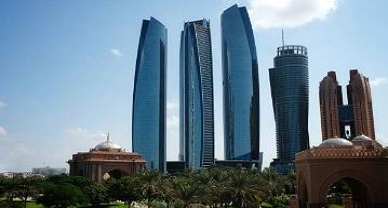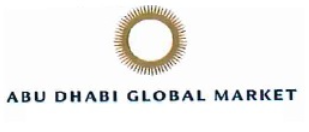Analysis Of The Abu Dhabi Global Market Vs. The Registrar Of Trademarks, Delhi Case: Key Rulings And Implication
Introduction
ABU DHABI GLOBAL MARKET lodged an appeal against the rejection of its trademark registration application contending that the rejection by the Trade Marks Registry was unfounded both in fact and in law, while the respondent centered their objections around the use of a geographical name and the lack of distinctiveness. The court rendered a verdict stating that the mark did not necessitate being newly created or invented in order to be eligible for registration, thereby deeming the objections invalid. Consequently, the rejection order was overturned, and the application was remanded for further proceedings.
Understanding The Grounds For Rejection And The Court’s Ruling
BRIEF FACTS OF THE CASE
- An appeal against the rejection of Application No. 3184380 for trademark registration of “
” under classes 16, 35, 36, 41, and 45 was filed by the Appellant.
- The order of the Registry cited following grounds for rejection: The Appellant failed to establish the distinctiveness of the mark in the applied classes, as it did not appear to be coined or invented. Additionally, it was cited that the Appellant failed to provide evidence of use to establish distinctiveness, and the mark contained a geographical name (ABU DHABI) and the mark as a whole was considered non-distinctive and hence cannot be registered.
Appellant’s Contentions
- The Appellant’s argued that both grounds for rejection are unfounded in fact and law. Regarding the finding of non-distinctiveness, it was asserted that the mark is already registered and recognized by the Registrar of Trademarks, indicating its distinctiveness and compliance with Section 9 of the Trademarks Act 1999. It was further argued that the addition of the words “ABU DHABI GLOBAL MARKET” below the mark does not diminish its distinctiveness.
- In response to the finding that the mark
is not coined or invented, Appellant highlighted that the trading name “ABU DHABI GLOBAL MARKET” has been legally adopted by the Appellant under the Federal Laws of the United Arab Emirates (UAE).
- Regarding the objection related to the mark containing a geographical indicator, Appellant argued that there is no legal prohibition in the Trademarks Act against registering a composite mark that includes the name of a place.
- And in response to not filing an affidavit of use, Appellant clarified that when the application is filed on a proposed-to-be-used basis, there is no statutory requirement to submit an affidavit of use.
Respondent’s Contentions
- The Registrar’s submissions were focused on the objections regarding the use of the name “Abu Dhabi” as a geographical indicator and the lack of distinctiveness of the mark.
- Respondent contended that the Assistant Registrar rightly rejected the mark based on the absolute prohibition stated in Section 9(1)(b) of the Trademarks Act, which prohibits the registration of marks containing the name of a place as the geographical name constituting the prominent part of the mark.
Issues Before The Court
- Whether the first ground cited by the Assistant Registrar, stating that the mark is neither coined nor invented, be considered valid or not?
- Whether the ground that Appellant had failed to establish distinctiveness by filing an affidavit of evidence of use of the mark can be considered valid or not?
- Whether the ground that Abu Dhabi is a geographical name, being the capital of the UAE, and therefore non-registrable, considered valid or not?
[Image Sources : Shutterstock]
Ratio
With respect to the first ground cited by the Assistant Registrar as the basis for refusal is that the mark in question is not coined or invented it has been observed that the Trade Marks Act, specifically Sections 9 and 11, comprehensively and exhaustively outline the grounds for refusal of trademark registration and there is no requirement for a mark to be coined or inventive in order to be eligible for registration. While distinctiveness is a prerequisite, inventiveness is not necessary for trademark registration. Inventiveness is only required for the registration of a design or a patent therefore, the Assistant Registrar could not have refused to register the mark on the ground that it is not “coined” or “inventive”.
- With respect to issue of the Appellant’s failure to establish distinctiveness through the submission of an affidavit of evidence regarding the mark’s use. This decision by the Assistant Registrar attempts to establish a connection between distinctiveness and evidence of use, which goes against the definition provided in Section 9(1)(a) of the Trade Marks Act. According to the Act, “distinctiveness” is defined as the capability to differentiate the goods and services of one person from those of another.
- It was observed that the requirement of ‘evidence of use’ to establish distinctiveness is not necessary. Accepting such an interpretation would render the registration of marks on a “proposed to be used” basis impossible, as sought in the present case. Therefore, the finding of the Assistant Registrar not only contradicts the provisions of the statute but also demonstrates a complete lack of consideration.
- Furthermore, it was noted that the mark ” ABU DHABI GLOBAL MARKET” is already registered in favor of the Appellant with the Registrar of Trademarks, indicating the recognition of its distinctiveness. The court referred to the case of Mohd Rafiq v. Modi Sugar Mills[1], which cited Section 9(3) of the Trade & Merchandise Marks Act, 1958. According to which, a trademark must be adopted to distinguish the goods of the proprietor from those of others in order to be considered distinctive. As long as no one else uses the mark or a similar mark, it is generally not considered non-distinctive. Even if a mark may seem insignificant, if it is exclusively used by one person, it can be deemed distinctive. For example, if someone uses the simple exclamation mark (!) as a trademark and no one else is using it, it cannot be claimed that it lacks distinctiveness. Whenever the exclamation mark is mentioned in relation to that category of goods, people would naturally associate it with the sole registrant of the mark.
- In the present case, there is no evidence to suggest that the mark is being used by anyone else. Moreover, the mark consists of a combination of a
motif and the words “ABU DHABI GLOBAL MARKET.” Therefore, the ground on which the Assistant Registrar rejected the mark was deemed invalid.
- With respect to the third ground of refusal to register the mark for the reason that Abu Dhabi is a geographical name, being the name of the capital of the UAE and is, non-registrable under Section 9(1)(b) of the Trade Marks Act it was clarified that the Section in its clear and explicit terms, proscribes registration only of trade marks “which consist exclusively of mark or indications, which may serve in trade to designate the … geographical origin… of the goods or services”. It is only, therefore, trademarks, which consist exclusively of marks or indications which designate the geographical origin of the goods, which cannot be registered.
- Therefore, the court quashed and set aside the impugned order dated 9th December 2022 and allowed Application No 3184380 to be remanded to the office of the Registrar of Trademarks for advertisement and proceedings thereafter in accordance with law. The Court also explicitly expressed its dissatisfaction in the way in which the Ld. Examiner disposed off the examination of the trade mark application.
Conclusion: Court’s Verdict And The Way Forward
- Conducting regular training sessions for trademark examiners to ensure consistent interpretation of laws.
- Streamlining the examination process to enhance efficiency and consistency.
- Ensuring transparency and accountability in the examination process.
Author: Rishabh Audichya, student of 4th year B.A-LL.B.(Hons.) ICFAI University, Jaipur, in case of any queries please contact/write back to us at support@ipandlegalfilings.com or IP & Legal Filing.
[1] AIR 1972 Delhi 46

 is not coined or invented, Appellant highlighted that the trading name “ABU DHABI GLOBAL MARKET” has been legally adopted by the Appellant under the Federal Laws of the United Arab Emirates (UAE).
is not coined or invented, Appellant highlighted that the trading name “ABU DHABI GLOBAL MARKET” has been legally adopted by the Appellant under the Federal Laws of the United Arab Emirates (UAE).

